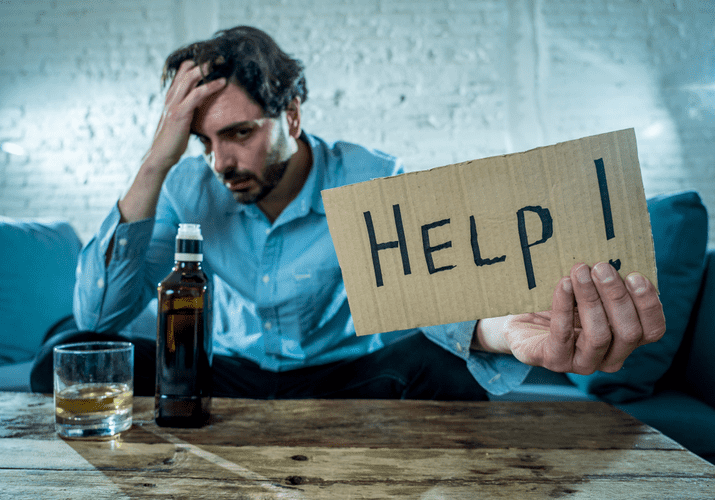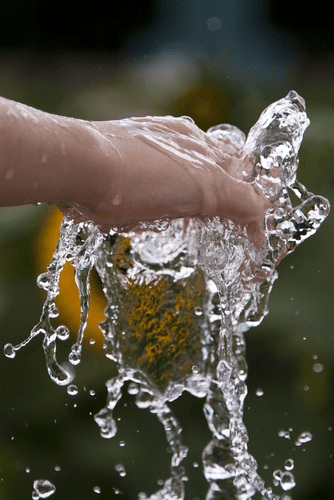My first real wake-up call came just days into my freshman year when I ended up in the hospital after a binge-drinking episode. That night, I also admitted to myself that I was struggling with an eating disorder. But despite the consequences, I didn’t confront the deeper issues; instead, I continued to numb them with alcohol.

Take our quiz to see if you or a loved one needs substance use or mental health support.
Jennifer Merrill conducted literature searches for the research question of interest in the present study, conducted the statistical analysis, and wrote the first draft of the manuscript. No matter where you are in your recovery journey, our levels of care are personalized to your unique needs. All authors have read and provided substantial contributions to the final version of the study protocol. ST is the central and principal investigator of the project and is responsible for drafting the initial proposal with all subsequent revisions. CW is the principal investigator for the study and for drafting the final protocol for publication. MM contributed substantially to drafting the initial proposal and to the revision of the initial proposal as well as to the revision and final approval of the manuscript.
Statistics on Alcoholism and Bipolar Disorder
Decades of research have firmly established the importance of asking primary care patients about their alcohol use, providing brief advice about reducing alcohol misuse, and referring them to appropriate alcohol treatments, as necessary. For instance, plan exactly what you’ll do when stress hits, whether it’s calling a friend, going for a walk or listening to an urge surfing video. She shifted quickly from being a night owl to an early bird, opted for brunches instead of dinners, and put herself in social situations where alcohol would’ve been “weird”. Whether it’s jogging, yoga, weight training, or even dancing, finding a physical activity that feels enjoyable can provide an excellent outlet for stress. Group activities like Halfway house team sports or fitness classes can also create a sense of community and support.
Family therapy can help create a safe “container” where alcohol as a coping mechanism you can examine how your closest relationships are impacting your thoughts, feelings, and behaviors — including alcohol. “If you are not sure if you have alcohol use disorder, you may want to have a period of sobriety to see if you feel better without alcohol, such as a Dry January,” says Volpicelli. If you find yourself leaning on alcohol to cope with emotional challenges, you may want to consider reaching out for help. “As alcohol levels fall and GABA levels fall, the brain stays hyperactive from the extra glutamate activity,” Volpicelli explains.
Go to therapy.
Additionally, alcohol consumption can destabilize mood regulation and increase the risk of experiencing mood episodes or worsening existing symptoms. The intertwining relationship between alcohol and bipolar disorder extends beyond the psychological and genetic aspects. It also encompasses the interaction between alcohol consumption and medications used in the treatment of bipolar disorder.
Additionally, day-to-day stressors can start to pile up and feel so overwhelming that we seek immediate relief. In these moments, practicing mindfulness brings your attention to the present moment and prevents your thoughts from spinning out of control in a stressful situation. Our dedicated team is here to provide a safe, judgment-free space where you can talk openly and honestly. It takes work to address the root cause that may be leading you or someone you know to misuse substances. In the long run, however, it will help keep you, and those around you, healthy and mission ready.

- First responders often face a unique set of challenges that can take a toll on their mental and physical health.
- Recovering from alcohol or drug use is a complex process that often requires professional guidance.
Negative mental health effects are common as well, with depression and anxiety setting in the longer you lean on alcohol to cope. Depression is a mental disorder against which various pharmacological and non-pharmacological self-management measures are taken 114. Alcohol consumption can provide temporal relief from negative affect and depressive symptoms 101, 115. In particular, men who developed a ‘male depression’ reported self-managing this state with alcohol 116. The self-management of depression with alcohol is often characterized by a refusal of medical treatment, with alcohol seen as a “quick solution” 116.
Swarnakshi is a content writer at Calm sage, who believes in a healthier lifestyle for mind and body. A fighter and survivor of depression, she strives to reach and help spread awareness on ending the stigma surrounding mental health issues. She is an avid reader and writer and likes to spend her free time baking and learning about world cultures.
Why You Shouldn’t Rely on Alcohol During Times of Stress
- Support groups such as Alcoholics Anonymous (AA) or Narcotics Anonymous (NA) offer structured peer support, while therapy groups provide professional guidance.
- When under the influence, you might find yourself making decisions you wouldn’t normally make or engaging in behaviours that exacerbate your emotional pain.
- In this post, she shares her personal journey of breaking free from alcohol and how The Path from This Naked Mind helped her change her life.
With regard to alpha-amylase, both AUC measures and peak minus baseline levels will be calculated. In the control condition, subjects participate in a Placebo-TSST, which is comparable in time and task division but without any audience and stress exposure for the participants 101. It starts with a preparation period, followed by a free speech about the last vacation and finishes with a simple task of counting forward.

If you are questioning whether you or your loved one uses alcohol as a coping mechanism, don’t hesitate to reach out to us. Talking to a professional can help you determine the extent to which you use alcohol as a crutch and the negative impacts it might be having on you. Alcohol functions to slow down the central nervous system, creating feelings of relaxation. Because of these qualities, alcohol becomes a way to distance oneself from stressors or challenges an individual may be facing. While our trauma doesn’t define us, it can influence our relationship with alcohol.
Coping With Alcohol And Mental Health Problems
Drug consumption for the self-medication of infections, gastrointestinal problems, and other physically adverse conditions is reported 12 as a learned, inherited behaviour 4, 13. Thus, the consumption and instrumental use of alcohol have an evolutionary origin, starting long before human beings emerged. The occurrence of genetic variants in the enzyme alcohol dehydrogenase (ADH) in hominids, which enhanced the metabolization of alcohol in, e.g., fermenting fruits 14, enabeled increased alcohol consumption. Part of this evolutionary history and beneficial alcohol use is the human understanding that alcohol kills germs, and therefore, represents a safer and healthier alternative to available water sources. Deliberately using alcohol to change mental states at dedicated times and on special occasions has long been recognized as a driver of human social and cultural evolution 15, 16.
